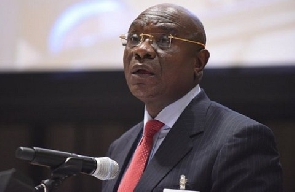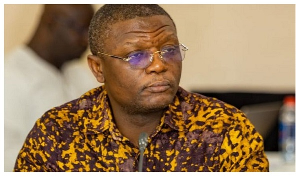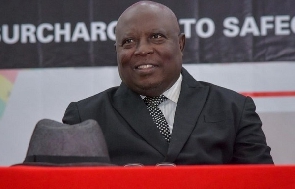By Joe Kingsley Eyiah, Toronto-Canada
Recent reports from Ghana have it that the Ghana National Association of Teachers (GNAT) has signed an agreement with government for a 17 per cent salary increment for teachers, while awaiting the implementation of the Single Spine Salary Structure early next year. And that “the increment takes effect from January 1. This welcoming news for teachers in our motherland was announced by the Assistant Greater Accra Regional Secretary of GNAT, Mr Joshua Aidoo in Tema during the 3rd Quadrennial Delegates' Conference of the Tema Metropolitan branch of the association. The conference was on the theme: "Teacher, the pinnacle of the new educational reform." (GNA/Ghanaweb, July 11, 2009)
I hope President John Attah Mills, once a teacher himself, will push his government to go beyond just increasing the salaries of teachers in Ghana to improving their working conditions to make the teaching profession attractive in Ghana.
Undoubtedly, education is the biggest enterprise in any civilized society. Teachers play an important role in this enterprise. Their training and maintenance as professionals must be given serious attention.
Teacher Training and Development in Ghana: As an educator and former teacher-trainer in Ghana I begin on the note of professional attachment for teachers in training. There is the need for a “collaborative partnership” between the Teacher Training Colleges (TTCs), schools and the community to improve efficiency and effectiveness of professional experiences and attitudes that the beginning teacher must acquire to become an effective teacher. I view the above suggestion as a contribution to the needed change to improve upon the effectiveness of teacher education in Ghana. I, in this wise, call for an innovation to the quality of professional attachment already in place. This is a contribution to creating effective teachers for Ghana’s classrooms through the collaborative efforts of the TTCs, schools (where practice teaching takes place) and the community to provide the beginning teacher with the needed professional environment, knowledge and supervision during field teaching in schools. I draw inspiration from some studies on Professional Development Schools (PDS) in North America, which seek among others to bring together, many in partnership (universities, schools and educators) and anticipate their interaction with each other to bring about desirable goals for teaching and learning. One such study was by McCarthey and Peterson (1993), which spoke to the interactions of component in the context affecting teaching. However I limit my call to collaboration rather than partnership since in the case of Ghana a call for PDS as exist in North America, at this time of the country’s educational reform program would be too ambitious.
The government of Ghana announced free and compulsory basic education for all school-age children by the year 2005. We are four years already beyond the targeted timeline! The implementation of this free Compulsory Universal Basic Education (fCUBE) program requires the services of a large number of well qualified teachers to make it very successful. According to the policy Document on Basic Education Sector Improvement Program issued by the Ministry of Education in Ghana, “the teachers should be well-versed in teaching, particularly in primary methodology. Teachers should be developed to fulfill the desired roles in the fCUBE program.”
The percentage of teachers that go abroad for further studies and then do not return to Ghana is phenomenal. Perhaps the pay structures and lack of job prestige have something to do with it. In the US teaching has not got high status. It used to have a certain status, but that has been eroded by the level of salaries in the computer and entertainment industries. However, in Canada, teachers are paid reasonably well and have one of the best pensions in the country. The teachers’ unions/federations in Canada are always in the forefront fighting for better service conditions and improved benefits for teachers. Can the same be said of Ghana? I am not comparing Ghana to Canada but I am looking at relative situations where we expect any country to make the best out of what it has. Priorities! I therefore commend President Mills for making education one of his priorities and vowing to improve the working conditions of teachers in Ghana as part of his commitment to making education reforms in the country more meaningful and successful.
Salvaging the Unfortunate Trend of Formal Education in Ghana: It would not be far-fetched to surmise that education in Ghana today is apparently in crisis - from the JSS through the SSS to the tertiary institutions. There is so much uncertainty about and mismanagement of the educational policies initiated by the PNDC government, which were strongly supported by the World Bank. Though things are not as expected, all is not lost yet.
Precisely, it is in the light of this crisis that we must do something about and with our education. We have to put our heads and hands together to revamp education in Ghana.
The government is called upon to take immediate measures to addressing the rapidly deteriorating situation and the prevailing uncertainties. It is urgent for the Mills’ government to tackle the declining teachers’ morale in Ghana and put the teaching profession at its proper place in our education reforms.
God Bless the teachers of our land.
God Bless our homeland, Ghana!
Opinions of Friday, 17 July 2009
Columnist: Eyiah, Joe Kingsley


















